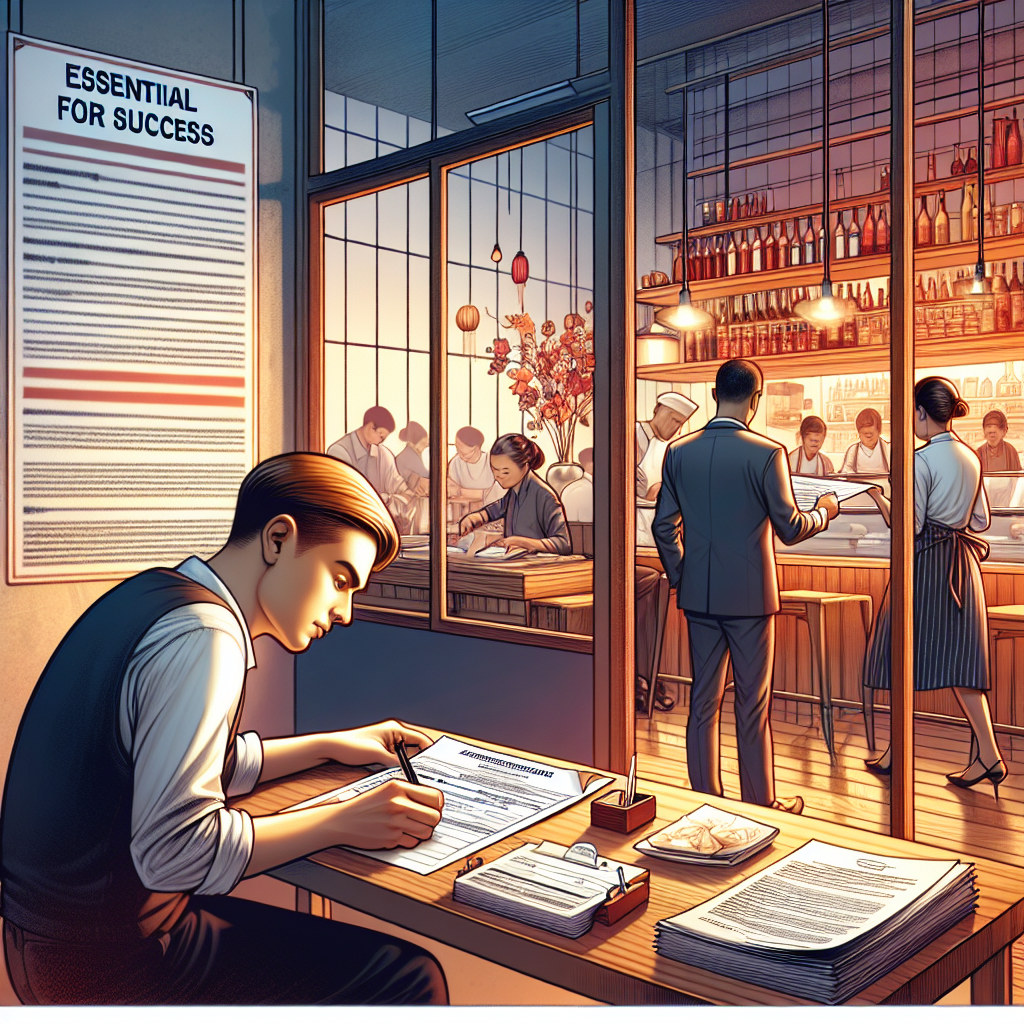License for Restaurant: Essential Steps for Success

When starting a new venture, acquiring the proper licensing is one of the most critical steps. A license for a restaurant is essential for legal operation and can significantly influence the success of your establishment. Navigating the requirements of a restaurant license may seem daunting, but understanding the necessary steps can set you up for long-term success.
Understanding the Importance of a Restaurant License
A restaurant license serves multiple purposes. Firstly, it ensures that your business complies with local, state, and federal regulations. Secondly, it protects your patrons by ensuring that health, safety, and food quality standards are met. Lastly, a valid license enhances your credibility, making your restaurant more appealing to potential customers.
Types of Licenses Needed
Your journey toward obtaining a license for your restaurant will require several key documents. Here are some of the most common types of licenses you may need:
1. Business License: This is a general permit that allows you to operate your business legally in your city or state. Requirements vary, so check with your local government.
2. Food Service License: This license is crucial for any establishment that prepares and serves food. You’ll need to demonstrate that your restaurant meets specific health and safety standards.
3. Alcohol License: If you plan to serve alcoholic beverages, an alcohol license is essential. This can be one of the most complicated licenses to obtain, with requirements varying significantly by location.
4. Music License: Should you wish to play music in your restaurant, you may need a performance or broadcasting license through organizations like ASCAP or BMI.
5. Sign Permit: If you plan to put up a sign for your restaurant, you might need a permit, depending on your city’s regulations.
Steps to Obtain a Restaurant License
Step 1: Research Local Regulations
The first step toward obtaining a license for your restaurant is to research the local regulations in your area. Different states and municipalities may have unique requirements for licenses, permits, and zoning. Speak with your local chamber of commerce or business development office to obtain guidance on the specific licenses you will need.
Step 2: Develop a Business Plan
A comprehensive business plan can serve as your roadmap for acquiring your licenses. It should detail your restaurant concept, target market, budget, and a timeline for opening. Many licensing bodies require a solid business plan to understand your operations and assess your viability as a business.
Step 3: Apply for Necessary Licenses
Once you know which licenses you need and have completed your business plan, you can begin the application process. Gather all required documentation, such as:
– Proof of identity
– Business formation documents
– Health department inspection reports
– Proof of insurance
Make sure to fill out each application thoroughly and submit them according to the specified guidelines.
Step 4: Health and Safety Inspections
Many states require health and safety inspections before issuing a food service license. Expect health inspectors to assess your kitchen, food storage, and dining areas to ensure they comply with local regulations. Use this opportunity to demonstrate your commitment to maintaining high standards.
Step 5: Wait for Approval
Once you’ve submitted your applications and passed any necessary inspections, it’s time to wait for approval. This process can take anywhere from a few weeks to several months. Follow up regularly with the appropriate agencies to check on your application status.
Tips for a Smooth Application Process
1. Stay Organized: Keep all your documents, applications, and communications with licensing bodies in one place for easy access.
2. Be Thorough: Incomplete applications can slow down the approval process. Double-check that you have included all necessary information and documentation.
3. Seek Professional Help: Consider hiring a consultant or legal expert specializing in restaurant licensing to navigate the complexities.
Conclusion
Acquiring a license for your restaurant is an essential step that can significantly influence your overall success. By understanding the types of licenses required and following the proper steps, you can ensure a smoother application process and set your establishment on the path to success. Your restaurant’s journey begins here—embrace the challenge and take the necessary steps towards turning your culinary vision into a reality.

